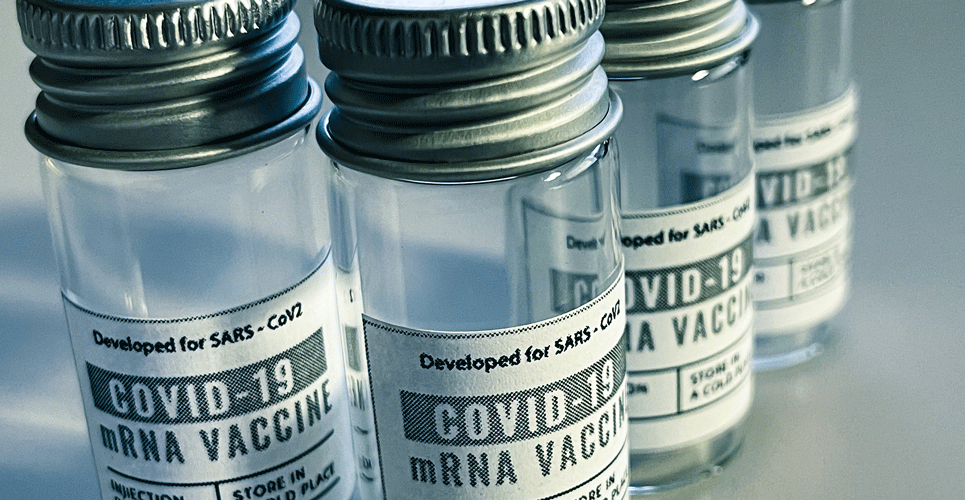The mRNA-1273 vaccine has been shown to generate an antibody response in children from 6 months which is non-inferior to that of young adults
The mRNA-1273 vaccine directed against COVID-19 produces an antibody response in children aged from 6 months to 5 years that is comparable to that elicited by young adults, aged 18 to 25 according to the findings of a study by US researchers.
It has become recognised that the efficient transmission of COVID-19 from school-age children and adolescents to household members can occur and lead to the hospitalisation of adults with secondary cases of the virus. While both COVID-19 infections and deaths are less frequent in children compared to adults it has been estimated that of 4.1 million COVID-19 deaths, 0.4% (16,100) occurred in those under 20 years of age and of which, 47% were in those age 0 to 9 years. Vaccination against COVID-19 is known to be effective at reducing hospitalisation and death in adults and the mRNA-1273 vaccine is also known to be safe and effective at inducing an immune response and preventing COVID-19 in children 6 to 11 years of age. However, whether the vaccine remains safe and able to elicit a satisfactory antibody response in children from 6 months of age is uncertain and was the purpose of the present study.
The US researchers undertook a phase 2 – 3 trial to determine the most appropriate dose in younger children. This revealed that a 25-μg dose of the mRNA-1273 vaccine was safe in children from 6 months of age. The team then randomised children aged 6 months to 23 months and between 2 and 5 years in a 3:1 ratio to two 25-μg doses administered 28 days apart or matching placebo. The aim of the study was to assess whether the antibody response was non-inferior to that generated by those aged 18 to 25.
mRNA-1273 vaccine antibody response in children from 6 months
A total of 1761 children with a median age of 16 months (51.7% male) received two doses of the vaccine and of whom, 89.4% tested negative for COVID-19. The median duration of follow-up was 68 days.
When assessed at day 57, the neutralising antibody geometric mean concentration was 1781 (95% CI 1272 – 1563) among those aged 6 – 23 months. This compared to a mean concentration of 1391 in those aged 18 to 25 (who had received 2 x 100 μg doses) and met the pre-defined criteria for non-inferiority. A similar and non-inferior response was also generated in those aged 2 – 5 years. In addition, there were no major safety concerns with adverse events mainly low-grade and transient.
In terms of vaccine effectiveness, within the 6 – 23-month group, infection occurred in 3.4% of the mRNA-1273 vaccine group and 6.6% of the placebo group, giving a vaccine efficacy of 50.6% (95% CI 21.4 – 68.6%). Among those aged 2 to 5, the vaccine efficacy was 36.85 (95% CI 12.5 – 54%) during the period of time when Omicron was the predominately circulating variant.
The authors concluded that two 25-μg doses of the vaccine were found to be safe in children 6 months to 5 years of age and elicited immune responses that were noninferior to those in young adults.
Citation
Anderson EJ et al. Evaluation of mRNA-1273 Vaccine in Children 6 Months to 5 Years of Age. N Eng J Med 2022

